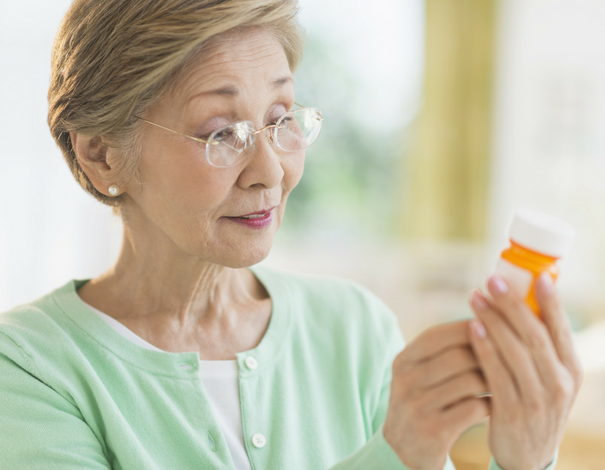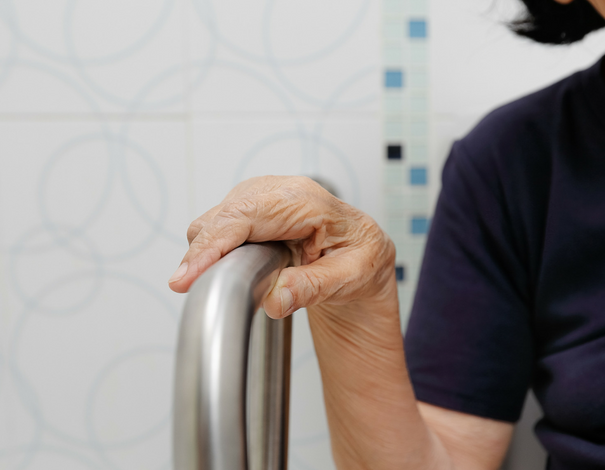Taking Care of Ourselves So we Can Care for Others
If you are one of the numerous individuals who act as a caregiver, it’s important that you take good care of your own health as well. Taking care of someone who is ill takes a lot of time and energy.
Being a caregiver: not always a choice
While some people choose to become caregivers, the task is often imposed on us directly (e.g., when a spouse or child becomes ill) or indirectly (e.g., when an elderly parent expects their child to take care of them).
No matter the situation, caregiving significantly impacts all areas of life, including family life, romantic relationships and work, as well as mental health. For many caregivers, often women, caregiving can lead to feelings of guilt for not doing enough for their loved one. This can cause a significant mental burden and easily lead to exhaustion if caregivers do not take care of themselves.Taking good care of yourself first
A healthy diet is the foundation of good health, whether or not you are a caregiver. Treating yourself once in a while with something like a glass of wine or a pastry is fine, but make sure it doesn’t become a crutch that you use to relieve stress, especially alcohol.
You know physical activity is excellent for your physical and mental health, yet you tell yourself you don’t have time for the gym? There’s no need to overcomplicate things. Going for a walk or dancing around as you vacuum counts as physical activity. The important thing is to be active every day, ideally for at least 30 minutes. Choose an activity that you enjoy and that fits into your busy schedule.
Managing your stress
Caregivers can have various sources of stress, such as:
- New responsibilities for which they have little or no training (providing care, handling someone’s finances, etc.)
- Lack of time to deal with many obligations
- Unrealistic expectations towards their own abilities or those of the person they are caring for
- Disagreements with the person they are caring for or other members of the family
- Feeling isolated
The first step is to identify the source of your stress so that you can look for solutions and seek help if required.
In addition to seeking help, adopting some healthy habits can help you cope with stress better. For example, you can try meditating or doing breathing exercises or take a few minutes a day to do a relaxing activity (taking a hot bath, reading before bed, listening to music, etc.).Task sharing
As a caregiver, you may sometimes feel that you are the only person who can do it all, but help is available.
To help you have a better global view of the tasks at hand, make a list of what needs to be done and put it in order of priority. Next, choose your battles and delegate. If you don’t have anyone who can help, don’t hesitate to call aid agencies. They offer various services to help in every area of life, such as:
- Services that can help with housework or grocery shopping
- Prepared meal delivery services
- Adapted transportation services
- Day or respite services where the sick person can spend a few hours or days
- Home nursing services
- Caregiver support and exchange groups
- Legal or financial advice services
Setting boundaries
Sometimes, even when we want to seek help, our loved one may not want outside assistance. In these cases, we must set boundaries to preserve our mental and physical health. In some situations, it is possible to take good care of someone without saying yes to everything, but sometimes outside help must be imposed.
Setting boundaries can lead to conflict with our loved one or guilt for the caregiver. It is important to have someone to confide in, such as a partner, friend or healthcare professional, so that you can verbalize your emotions and gain some perspective on them.
Recognizing the signs of burnout
When we are completely invested in a caregiver relationship, it’s easy to ignore our signs of distress. However, it’s important to recognize them as soon as possible so that we can make the necessary changes or get the help we need.
If you are experiencing any of the following situations, consult a healthcare professional, who can offer support and help you find the resources you need:
- Significant fatigue or exhaustion
- Irritability, impatience
- Difficulty concentrating
- Loss of appetite, or eating more than usual
- Feeling overwhelmed by the situation
Making life easier with technology
There ate various types of technology that can help you support your loved ones better. With their consent, you can for example use their pharmacy’s app to manage their medication. These apps allow you to order medication refills each month or set up automatic refills. You can also use them to send a new prescription to be filled before picking it up at the pharmacy or having it delivered.
If you don’t supervise your loved one’s medication, there are apps that can help them take their medication at the right time by setting alarms, for example. These apps can also be useful for you!
FAQ
Can I get paid for being a caregiver?
No, if you want to be considered a caregiver, you cannot receive payment for the care you provide. However, the federal and provincial governments offer tax credits to caregivers and individuals in need of care. Certain criteria must be met, and sometimes a form or certificate completed by the attending physician is required.
You can reduce the financial burden of caregiving by getting help from organizations that offer free services, such as accompaniment to medical appointments or assistance with household chores.
As a caregiver, am I entitled to days off?
Depending on your collective agreement or employment contract, you may be entitled to a certain number of days off for parental or family obligations. Some provinces offer paid or unpaid leave for caregiving needs.
You may also be eligible for Employment Insurance caregiving benefits if you need to take time off work to care for a critically ill or injured child or adult, or a child or adult who requires end-of-life care.
Visit your province’s or the Employment Insurance website for more information.
Your pharmacist is here to help
If your loved one regularly takes several medications, don’t hesitate to ask your pharmacist for help managing them. For example, they can provide a pill organizer to make it easier to take the medications at the right time every day and reduce the risk of errors.
Your pharmacist can review your loved one’s medications, including over-the-counter drugs, supplements, and natural products, to ensure they are appropriate. This review should be done once a year or when there is a change in health status (e.g., new diagnosis or hospitalization). Make an appointment with your loved one’s pharmacist to ensure they will have enough time to review the medications and answer your questions. Due to confidentiality laws, the pharmacist will need your loved one’s permission to discuss anything with you.
Pharmacists can ensure that prescribed treatments are effective and recommend modifications when necessary. They can also renew prescriptions that are about to expire. These services are especially helpful if your loved one no longer has a doctor.
The pharmacy services presented in this section are offered by pharmacist owners who are affiliated with Proxim. The pharmacists are solely responsible for the professional activities carried out during the practice of pharmacy.
The information contained herein is provided for informational purposes only and is not intended to provide complete information on the subject matter or to replace the advice of a health professional. This information does not constitute medical consultation, diagnosis or opinion and should not be interpreted as such. Please consult your health care provider if you have any questions about your health, medications or treatment.




